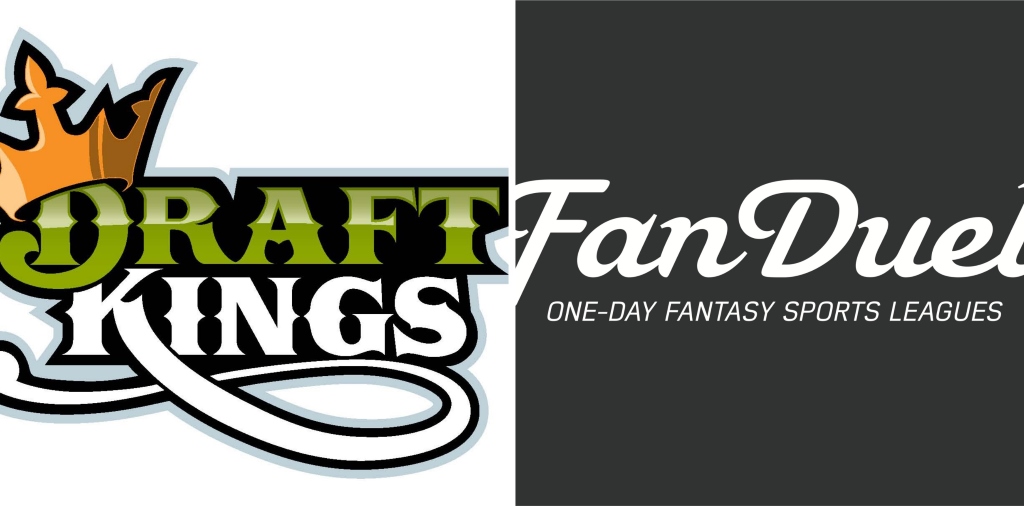Are You Ready for Some Fantasy Football?
Two major fantasy sports firms are lobbying the legislature. Will they score big?
The latest intrigue from the state Capitol: FanDuel and DraftKings, daily fantasy sports giants, this month hired well-connected lobbyists to work the rotunda. What are they looking for from legislators?
Neither the lobbyists nor the companies are saying, although others – including leaders and lobbyists for tribes that operate gaming casinos – suspect that FanDuel and DraftKings want a change in state law declaring that their businesses are not “gambling.”
Asked how DraftKings and FanDuel want to change state law, lobbyist Ryan Murray, former deputy chief of staff to Republican Gov. Scott Walker and a veteran Capitol staffer, said he can’t say. “We’re not authorized by our client to speak to the media.”
Murray and his lobbying partner, Capitol veteran Buddy Julius, registered on behalf of the two sports fantasy giants on Dec. 4, according to Government Accountability Board records.
A spokeswoman for DraftKings, Sabrina Macias, was almost as vague: “Draft Kings is working with legislators in states around the country to craft thoughtful and appropriate regulatory measures that protect consumers’ interests,” Macias said in an email. “We are committed to this legislative approach as we view state legislatures, not courts, as the proper place for our contests to be further regulated,” she added.
In Wisconsin, FanDuel and DraftKings must be careful that any change in state law they push won’t violate gaming compacts between state government and the tribes – compacts that give the tribes exclusive casino rights in exchange for paying state government $50.9 million in the fiscal year ending on June 30.
One Wisconsin tribal representative said the fantasy sports giants will have to “thread the needle” and not change state law in a way that a judge would interpret as violating the compacts. But until FanDuel and DraftKings show their hands in Wisconsin by having a specific bill drafted, there’s nothing for tribal leaders to comment on, the representative added.
Fortune Magazine has reported the two companies spent a combined $100 million in TV advertising in the first week of the NFL season alone. The magazine suggested the two privately-held companies would be wise to consider a merger since “Neither is profitable or publicly-traded” and “Together, they make up an estimated 95% of the real-money fantasy sports market.”
And both are lobbying for legal changes to help their bottom line. One industry Website, Legal Sports Report, says fantasy sports companies are also fighting to change laws in several states, including Florida, Illinois, New Jersey and Pennsylvania. A Florida grand jury is also investigating fantasy sports, according to Legal Sports Report.
The Miami Herald reported that the industry’s national group, the Fantasy Sports Trade Association, hired six lobbyists in Florida to insist that millions of dollars that customers wager on sports are games of “skill” and not “chance.”
The Miami Herald also reported that campaign cash is going to legislators to push that change: “While the Fantasy Sports Trade Association is new to Tallahassee, they are already wise to the money game, donating $10,000 each in the last two weeks to four of the biggest players in the state’s discussion on gambling.”
In his lawsuit, Schneiderman alleged: “FanDuel and DraftKings insist that daily fantasy sports (DSF) is not gambling because it involves skill. But this argument fails for two reasons:
“First, this view overlooks the explicit prohibition against wagering on future contingent events, a statutory test that requires no judgment of the relative importance of skill and chance – they are irrelevant to the question.
“Second, the key factor establishing a game of skill is not the presence of skill, but the absence of a material element of chance. Here, chance plays just as much of a role (if not more) than it does in games like poker and blackjack. A few good poker players may rise to the top based on their skill; but the game is still gambling. So is DFS.”
Wisconsin’s Department of Justice has not been drawn – yet – into the controversy over fantasy sports businesses like FanDuel and DraftKings.
“We haven’t received any complaints in our office,” said Anne Schwartz, spokeswoman for Attorney General Brad Schimel. The attorney general has no position on whether DraftKings and FanDuel games involve “skill” or “chance,” Schwartz added.
But what are the odds – or the over/under – on whether FanDuel and DraftKings get what they want passed in Wisconsin?
Steven Walters is a senior producer for the nonprofit public affairs channel WisconsinEye. Contact him at stevenscwalters@gmail.com
The State of Politics
-
A Wisconsin Political Trivia Quiz
 Dec 15th, 2025 by Steven Walters
Dec 15th, 2025 by Steven Walters
-
The Fight Over Wisconsin’s House Districts
 Dec 8th, 2025 by Steven Walters
Dec 8th, 2025 by Steven Walters
-
The Battle Over On-Line Betting
 Nov 24th, 2025 by Steven Walters
Nov 24th, 2025 by Steven Walters























The legal definition of gambling contains three elements:prize, chance and consideration.These fantasy football scams clearly have all three.They, like most all commercial gambling, constitute a tax on the naive. The incredible amounts of money these swindles generate, like other profitable scams, play right into the wheelhouse of the modern money mad political system. The Republican legislature would love to rewrite the legal definition of gambling in exchange for the legalized bribery called campaign donations.Two problems for them: The native American gambling compacts; and the very real possibility that the massive amounts of money flying around will lead to a corruption of the NFL itself.
Pretty easy answer to your final question. How nuch are they willing to pay the republicans for the votes they need? Thats how the GOP has operated under Walker and with efforts to hide even more of what they do, by the crap legislation they voterd in, PAy to Play is the new norm for Wisconsin. Thanks fo Vos, Fitzgerald,, and Walker for making our state the new laughingstock of tranparent governance.